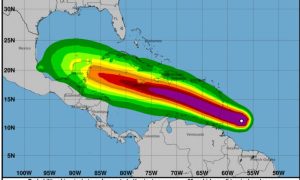SINGAPORE: A study led by researchers at Singapore’s Nanyang Technological University (NTU) has linked man-made emissions and natural sources like wildfires to around 135 million premature deaths worldwide between 1980 and 2020.
The findings reveal the detrimental impact of fine particulate matter, known as PM 2.5, on global health.
PM 2.5 particles, small enough to enter the bloodstream, primarily come from vehicle and industrial emissions, as well as natural occurrences like fires and dust storms.
These particles have been associated with strokes, heart and lung diseases, and cancer, leading to millions of deaths each year. The NTU study found that people affected by PM 2.5 pollution often died younger than the average life expectancy due to treatable or preventable conditions.
The research also highlighted the role of weather phenomena such as El Nino and the Indian Ocean Dipole in exacerbating air pollution.
These patterns intensified PM 2.5 concentrations in the air, contributing to a 14 percent increase in premature deaths. Asia, particularly China and India, experienced the highest number of premature deaths attributed to PM 2.5 pollution, accounting for more than 98 million fatalities. Significant numbers of deaths were also recorded in Pakistan, Bangladesh, Indonesia, and Japan.
Steve Yim, an associate professor at NTU’s Asian School of the Environment, emphasized the need to understand and consider climate patterns when addressing air pollution to protect global health. The study utilized satellite data from NASA and statistics on pollution-related deaths from the US-based Institute for Health Metrics and Evaluation, along with weather pattern information from the National Oceanic and Atmospheric Administration.
The research, published in the journal Environment International, is one of the most comprehensive studies on air quality and climate. Future studies by NTU researchers will focus on the impact of climate change on air pollution.
This study underscores the urgent need for global measures to reduce pollution and mitigate its health impacts. The World Health Organization (WHO) estimates that the combined effects of ambient and household air pollution result in 6.7 million premature deaths annually, highlighting the critical importance of addressing air quality issues on a global scale.























